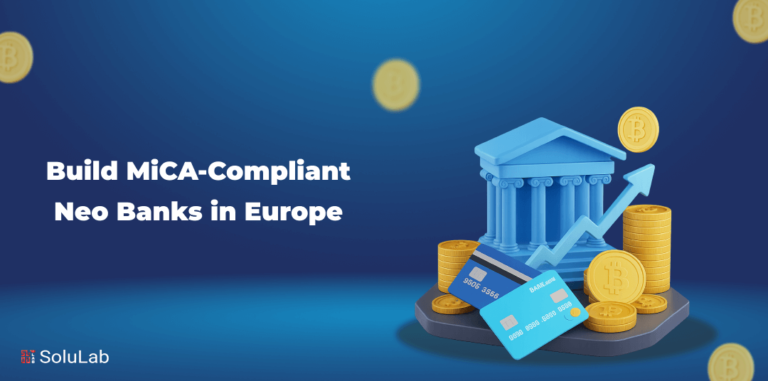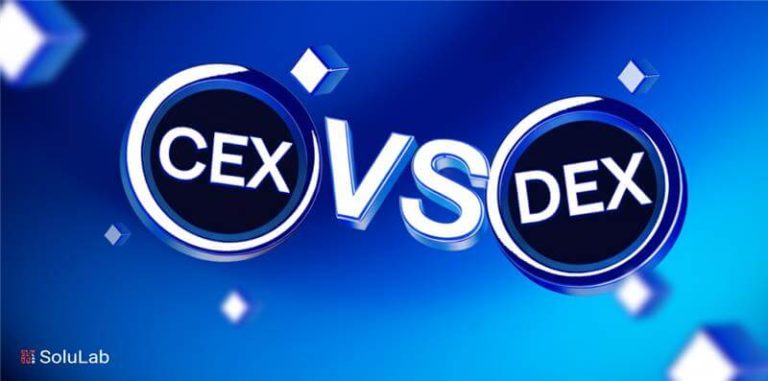
Introduction to Cryptocurrency
Cryptocurrency may be a kind of digital currency. It utilizes cryptography for protection and anti-counterfeiting measures—public and personal keys for assigning cryptocurrency between individuals.
As a counter-culture movement that’s often compared to cypherpunks, cryptocurrency is an authorization currency. This suggests users must reach a consensus about cryptocurrency’s price. And use it as an exchange medium as it’s not tied to a specific country. It’s fee isn’t controlled by a financial institution.
Cryptocurrency Exchange
It’s a system operating on the groundwork of trading cryptocurrencies with other assets. Sort of a traditional financial exchange. Its core operation allows the buying and selling of those digital assets.
A cryptocurrency exchange is additionally referred to as digital currency exchange (DCE).
To apprehend cryptocurrency exchanges. These new sorts of exchanges are different from ordinary financial exchanges. Cryptocurrencies are unstable as useful and sourcing—cryptocurrencies like bitcoin related to the most vital disruptive events. Here, bitcoin value changed over a fast period of your time. Or where major exchanges went under, thanks to theft, fraud, or different problems.
Cryptocurrency exchanges need to integrate protections from many of these events. In other ways, cryptocurrency exchanges work a bit like ordinary exchanges. On many of those platforms, cryptocurrency buyers and sellers can make limit orders or market orders. The brokering process works like it would for any different, quite an asset. The cryptocurrency exchange benefits with the transaction and receives the fees.
The difference is that the underlying asset—Bitcoin or another cryptocurrency that doesn’t have any national currency valuation properties.
Cryptocurrency wallets and wallet brokerages allow you to shop for and sell a little range of famous digital assets. You’ll then send it to a special exchange to exchange for other digital assets like altcoins. An instance of such an exchange is Kraken. It currently accepts funds within the sort of USD, JPY, CAD, and GBP. It also helps trades with Monero, Ripple, and Litecoin, also as Bitcoin and Ethereum.
What is the role of Blockchain in Cryptocurrency?
Blockchain is the technology that permits the existence of cryptocurrency (among different things). Bitcoin is the name of the best-known cryptocurrency. A cryptocurrency may be a medium of exchange, as the US dollar. But it is digital and makes use of encryption techniques to regulate the creation of monetary gadgets, also for verifying the transfer of funds.
A blockchain, a decentralized ledger of all transactions across a peer-to-peer network. Potential applications can include fund transfers, settling trades, and lots of different issues.
A blockchain is actually a digital ledger of transactions. That’s duplicated and distributed across the whole community of computer systems on the blockchain. Each block within the chain contains a variety of transactions. Every time a replacement transaction occurs on the blockchain. A record of that transaction was added to each participant’s ledger. The decentralized database is managed by means of many participants understood as Distributed Ledger Technology (DLT).
Blockchain may be a sort of DLT. During which transactions record with an immutable cryptographic signature mentioned as a hash.
Cryptocurrency exchange fee comparison
How much does the exchange cost for converting your money?
And how does this fee compare to other comparable exchanges?
The average fee for Mastercard buys is about 4%. Bank transfer buying fees are usually 1-1.5%. Compare the rates of any exchange to different similar exchanges.
Cash fees are usually 1%, although there’s a 5-10% premium on a daily basis. This is often very true at ATMs, where there’s always a premium.
The cryptocurrency change market features a vast range. One can choose these markets as per their preference and requirements.
Keep some main factors in mind when choosing an exchange. Those factors are
Fees
US Dollar Deposits
History of Security
Customer Service
Number of Coins Available
The most trusted Bitcoin Exchanges Platforms are as follows:
Binance- Its lowest buying and selling fees. It has most coins, large volumes, and no KYC required for this. No fiat deposits. No margin. It also has regulatory risks.
Binance is one of the most important exchanges within the world by total daily volume. It’s, by the way, the most important of any exchange available to US investors. This is often quite dazzling as it launched several years later than most of its competitors in mid-2017. It began by a team out of Shanghai, led by its famous CEO Changpeng Zhao, or CZ. Currently, it moved its headquarters to Malta. There, finance and crypto regulations are much less stringent.
Binance may be a famous exchange because it’s easy to know, low fee structure. It’s one of the rock bottom costs for US investors. It offers the foremost cryptocurrencies to trade out of any major change with overflow 100. Suppose investors trade the utility of its own cryptocurrency, BNB. They’re going to receive a further fee discount.
Additionally, its massive daily volume ensures efficient markets. So, traders are usually able to buy and sell even rather obscure coins. It is also one of the only large exchanges. It does no longer need customers to provide their identity and other economic details. Most customers only need an email tackle to start trading.
Additionally, there is no margin trading. There is a mobile app. But it is not as consumer-friendly as some of its competitors.
Deposit is free. The trading percentage is 0.1%.
Coinbase- It is good for beginners, has a great history of security. FDIC insured.
Coinbase Pro is for Advanced Trading. But it has excessive fees; customer service is slow and no margin. Coinbase is the most successful crypto alternative in the US. It has a profitability and average volume. They were founded in 2014 by ex-Airbnb staff. Coinbase has its headquarters in San Francisco. It affords a website and mobile app to trade cryptocurrencies.
Its simplistic interface makes it an outstanding option for investors. For learning about the crypto ecosystem. It boasts Coinbase Pro, a more complex platform geared for sophisticated traders and institutions. The Coinbase Pro product provides lower fees and several more cryptocurrency buying and selling options. Coinbase has a transparent and reputable past with security. It has never had any essential security incidents and insures deposits of USD and cryptocurrencies.
Coinbase has some of the highest fees when trading in USD pairs. This is a sizable downside for investors that are looking to buy or promote in large volumes. Coinbase does not have that best track file when it comes to customer service. Many customers in the past have complained about response times. And also about getting locked out of bills without explanation. However, this has improved in the last two years. Serious traders disappointed that there is no margin trading and no savings card purchases allowed.
Deposit at free (ACH) or $10 (wire transfer). Withdrawal is free (ACH or PayPal) and $25 (wire transfer). Trading (Coinbase) – 1.49% (US BANK ACCOUNT), 1.49% (COINBASE USD WALLET), 3.99% (CREDIT/DEBIT CARD). Trading (Coinbase Pro) – 0.05 to 0.025% (taker fee), 0.00 to 0.15% (maker fee).
Kraken- It has margin trading. It is the oldest exchange in The US and can trade tether for USD. It has no mobile app and mistaken past maintenance.
Kraken is the oldest US-based crypto exchange with its headquarters in San Francisco. Its founder’s name is Jesse Powell. After witnessing the failures of the now-infamous Mt. Gox exchange, he started it with buying and selling first going live in 2013. Kraken is the third-largest for buying and selling the volume of all exchanges on this list.
Kraken has several unique advantages over its competitors. It is the only exchange for US investors that offers both fiat deposits and margin trading. Investors can hyperlink their bank account and trade in US Dollars. And it is very useful for frequent traders. Margin buying and selling allow investors to borrow money to place large trades. This leveraging enables savvy investors to magnify gains though it is very unstable.
Kraken is one of the only exchanges in the world that enables investors to obtain Tether for US Dollars.
Tether is the most abundant stable coin (i.e., a cryptocurrency secured to the dollar). Tether is popular with traders.
As it allows them to comprehend their gains on only crypto exchanges. Kraken can be useful for traders who use several exchanges and favor an efficient way to cash out into US Dollars.
But, Kraken is the only necessary exchange for US investors that do not offer a cellular app—securing it less available and accessible.
Over the past two years, Kraken has undergone long periods of blackouts where its site would be restrained for days at a time.
However, there were no problems with lost funds or hacks. It was a serious problem for traders trying to trade during periods of intense market volatility.
Deposit is free or $5. Withdrawal is $5. Trading at 0.14% – 0.26 (under $100k).
Bitstamp- It is one of the most traditional exchanges in the world. FDIC insured and has excellent security antiquity. But it has high costs and limited coins.
Bitstamp is known as the oldest and most well-known crypto exchanges in the world.
It has largely been centered on the European market.
It was once originally based in Slovenia and later moved to Luxembourg. Moreover, it even has operations in London as well as New York.
It is still one of the greatest and best exchanges to use for European citizens due to its low fees. It provides US citizens access, even though its services are more limited, and fees are higher. For instance, it does allow savings card purchases for US citizens. Deposit and withdrawal fees are some of the highest in the market. Particularly for retail investors, who make smaller investments. Also, it solely offers a few of the most popular cryptocurrencies.
It can still be a great choice for some US investors. It has a stellar security record. This has been around longer than almost any different exchange in the world. It allows USD deposits, and all deposits are FDIC insured. Also, Bitstamp has an easy to use interface, and its trading charges are modest.
Deposit – 0.05% or $7.50. Withdrawal at 0.09% or $15. Trading percentage – 0.24% – 0.25% (under $100k). (For deposit and withdrawal, whichever is higher)
Poloniex- Poloniex has lots of cryptocurrency, low fees, and margin trading.
Poloniex is US-based with its headquarters in Boston. It is very popular with experienced crypto traders as it affords more advanced features and a significant quantity of cryptocurrency assets to trade. Users trying to buy their first Bitcoin would now not be the optimal place to start.
Poloniex has very low fees. It is free to deposit, but they only take delivery of deposits of crypto. Investors cannot link a bank account or buy a credit scorecard. It trades over 65 different cryptocurrencies, which is the most for an exchange based out of the US. Despite the extensive amount of assets it offers. Poloniex experiences much lower volumes than its opponents on the list. For reference, it often has daily volumes that are ten times smaller than a leading trade like Binance.
Poloniex also offers investors features they can’t find in other places. They are the only exchange to provide margin trading besides Kraken. A vital difference is that it additionally allows users to take both sides in the margin trading. In different words, users can borrow assets. It also lends their own assets, income interest in the process. Because it offers risky trading offerings and obscure coins. Poloniex is best accommodated for skillful crypto investors.Poloniex is now occupied by Circle, and it is a subsidiary of Goldman Sachs.
Deposit is free. Withdrawal varies by assets. Trading percentage 0.08% – 0.20% (upto $1M)




